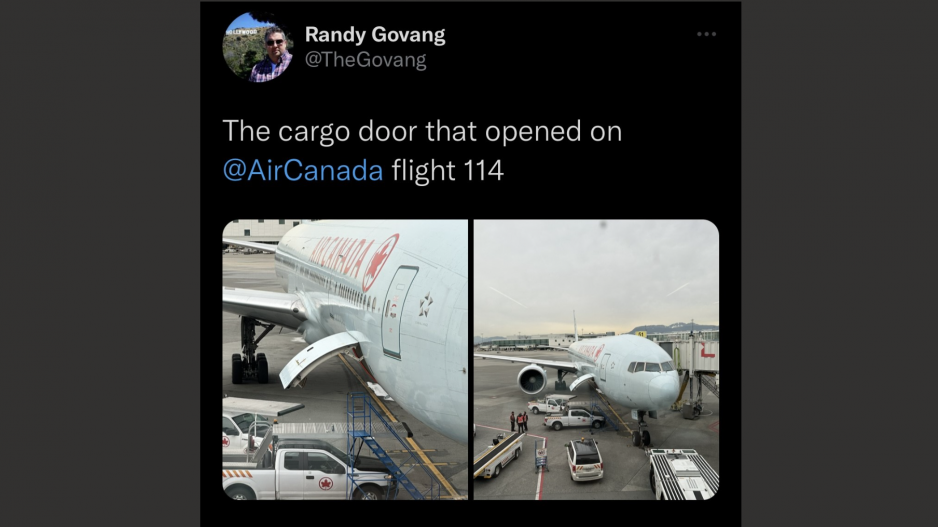The Transportation Safety Board said it is monitoring, but not investigating, an incident aboard an Air Canada flight that occurred early Monday afternoon.
Flight 114 from Vancouver to Toronto safely returned to YVR after air pressure suddenly changed. The pilot announced to passengers that a cargo door was open and reassured them that the situation was under control.
According to Flightaware.com, AC114, a Boeing 777, departed 35 minutes late at 12:30 p.m. and returned at 1:08 p.m. after flying a figure-eight pattern. The jet took off towards Blaine, Wash., then took a sharp turn toward Tsawwassen and headed west over Gabriola Island, before another sharp turn south over Nanaimo and a turn east over Galiano Island back to YVR.
“Someone didn’t fasten the cargo door properly and it opened during takeoff,” tweeted passenger Randy Govang. “Flight was depressurized and we had to circle to lighten the fuel load to land back in Vancouver.”
Air Canada’s media relations office denied that the door was open. It blamed the incident on a door indication signal that the pilots received.
“At no time was any door open when the airplane was in the air,” said a statement from the airline. “Passengers were rebooked to other flights with everyone re-departing yesterday. The aircraft was taken offline for technicians to complete a sensor change, it returned to service after final checks were complete.”
Transportation Safety Board (TSB) spokesperson Liam MacDonald said the independent agency has not deployed investigators, because it is not obliged to probe all reported incidents.
“The TSB may launch an investigation if there is likelihood of identifying new safety lessons to advance transportation safety,” MacDonald said. “Mechanical issues that do not result in a crash, injury or fatality are typically classified as class 5 occurrences.”
Under the TSB’s occurrence classification policy, incidents ranked fifth on its six-step scale are not subject to comprehensive investigations and reports. However, data is gathered and recorded for statistical reporting and future analysis.




